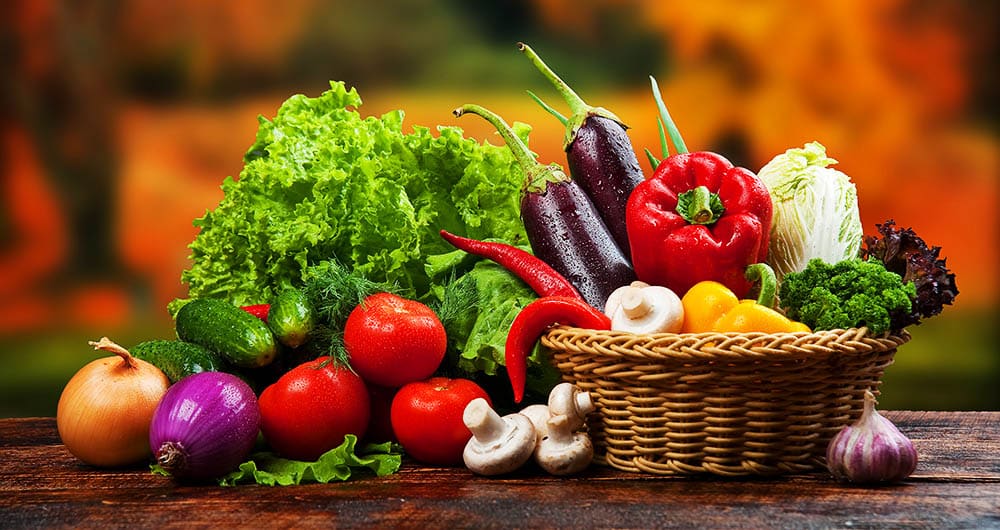The Benefits of Switching to Organic Food:
Organic food has become a popular choice on supermarket shelves, and for good reason. More and more people are choosing to switch to organic food because they believe it is a healthier and more ethical choice. In this article, we will explore the benefits of switching to organic food, the reasons why people choose to make this change, and some tips for making this switch in your own diet.
What is Organic Food?
Before we dive into the benefits of organic food, it is important to know what it actually means. Organic food is grown without the use of chemical fertilizers, pesticides, or genetically modified organisms (GMOs). It also means that animals are fed organic feed, have access to outdoor pasture, and are not given antibiotics or growth hormones. Overall, organic food is a more natural and sustainable way of producing food.
Better for Your Health
One of the main benefits of switching to organic food is that it is better for your health. Organic food is free of harmful chemicals, which means that you are not putting pesticides, herbicides, or chemical fertilizers into your body. These chemicals have been linked to a number of health issues, including cancer, ADHD, and infertility.
Furthermore, because organic food is free from GMOs, you are not consuming potentially harmful genetic modifications. GMOs have been linked to a number of health concerns, and many people choose to avoid them for this reason.
Additionally, organic food is often richer in nutrients than conventionally grown food. This is because organic farmers focus on soil health and use natural, nutrient-rich fertilizers. When the soil is healthy, it produces more nutrient-dense food.
Better for the Environment
Another significant benefit of switching to organic food is that it is better for the environment. Traditional farming practices often rely on chemical fertilizers and pesticides, which can have negative effects on the environment. These chemicals can contaminate soil and water, harm beneficial insects and animals, and contribute to climate change.
Organic farming, on the other hand, relies on natural methods to control pests and promote soil health. This means that organic farmers use practices such as crop rotation, cover cropping, and natural composting to grow healthy produce.
Furthermore, organic farming promotes biodiversity. By avoiding monoculture (the practice of growing one type of crop on the same plot of land year after year), organic farmers are able to promote a diverse ecosystem. This means that beneficial insects and animals are able to thrive, which can help control pests and improve soil health.
Reduced Exposure to Antibiotics
One of the less well-known benefits of organic food is that it can reduce your exposure to antibiotics. In conventional farming, animals are often given antibiotics to prevent disease and promote growth. However, this overuse of antibiotics can lead to the proliferation of antibiotic-resistant bacteria, which poses a serious threat to human health.
Organic farming standards prohibit the use of antibiotics in animal feed, which means that organic meat is less likely to contribute to the problem of antibiotic resistance. By choosing organic meat, you are not only supporting more humane animal farming practices, but also helping to promote public health.
Getting Started with Organic Food
If you are interested in switching to organic food, there are a few things you can do to get started. Here are some tips:
1. Start small: Switching to organic food can be daunting, so start small. Focus on buying a few key items, such as organic produce or meat, and gradually expand your organic purchases.
2. Shop at farmers’ markets: Farmers’ markets are a great place to find organic produce. Not only is the produce fresher and tastier, but you can also talk to the farmers about their farming practices.
3. Read labels carefully: Look for products that are certified organic by a reputable third-party organization, such as the USDA National Organic Program. This certification ensures that the product meets strict organic farming standards.
4. Grow your own food: If you have space, consider growing your own organic produce. This is a great way to ensure that your food is fresh and chemical-free.
Conclusion
Switching to organic food can be a great way to improve your health, support sustainable farming practices, and reduce your exposure to harmful chemicals and antibiotics. By making small changes to your shopping habits and focusing on organic, whole foods, you can reap the benefits of a healthier and more conscious lifestyle.

Deja una respuesta